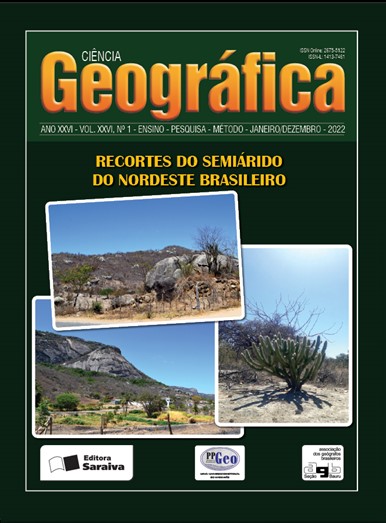DE UMA GEOGRAFIA DO SOM PARA UMA GEOGRAFIA DAS MÃOS: A IMPORTÂNCIA DA CONSTRUÇÃO DE CONCEITOS GEOGRÁFICOS EM LIBRAS
DOI:
https://doi.org/10.18817/26755122.26.01.2022.2889Palavras-chave:
Educação de surdos. Língua Brasileira de Sinais. Paisagem. Educação Inclusiva.Resumo
O presente artigo é um esforço no debate sobre a educação geográfica para surdos e a problemática da tradução de conceitos científicos das línguas ouvintes para a Língua Brasileira de Sinais (LIBRAS). A partir da leitura de teóricos que abordam a questão, tais como Heidegger (1997, 2003) e Berman (1999) construiu-se uma trajetória que nos direciona à compreensão das questões da língua e da tradução. Para tanto, partiu-se da categoria geográfica paisagem para demonstrar a relação dessa palavra com as culturas que a criaram. A partir disso, compreendeu-se que, a tradução sempre se mostra com falhas, tal como enunciado pelo ditado italiano tradutore, traditore. Se toda tradução é traidora, como se dá a construção de conceitos geográfi cos na educação de surdos? Essa barreira não se pode superar, porém, evoca-se nesse artigo a urgência da construção de conceitos geográfi cos pelos surdos em LIBRAS e possíveis caminhos a serem percorridos neste processo.


